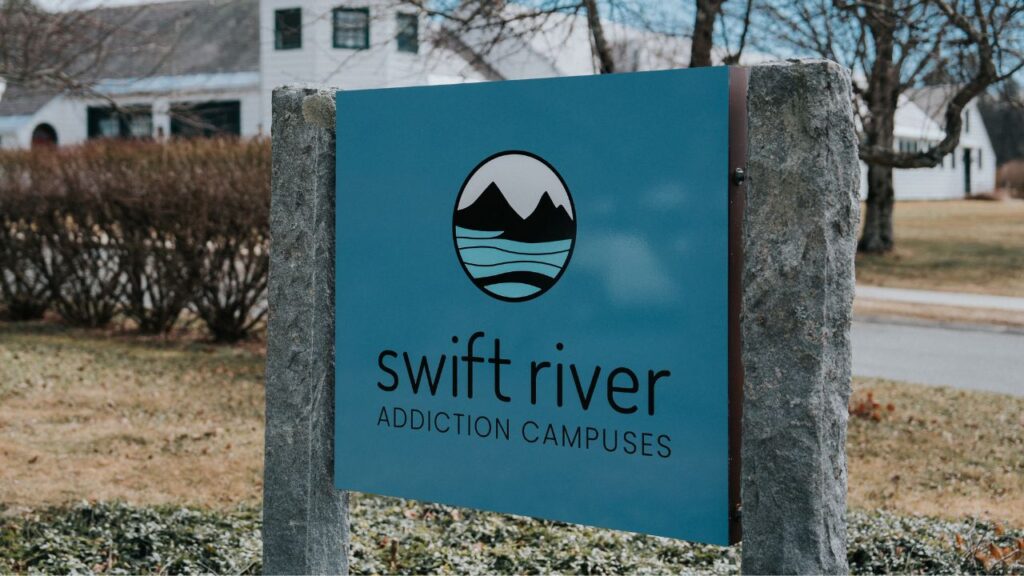Addiction doesn’t just affect one person – it impacts entire families. If you’re watching someone you love struggle with substance use, you’ve probably felt helpless, frustrated, and exhausted. You might have tried everything from pleading and bargaining to ultimatums and tough love, only to watch the cycle continue. The good news? Research shows that when families get involved in addiction treatment in the right way, everyone benefits, and recovery outcomes improve dramatically.
In Massachusetts, where addiction treatment programs increasingly recognize the power of family involvement, treatment centers are seeing better results than ever. As the state celebrates a 36% decline in opioid overdose deaths in 2024, much of this success can be attributed to comprehensive, family-centered approaches to recovery that address the entire system affected by addiction.
Why Family Involvement During Addiction Treatment Makes Such a Difference
The statistics tell a compelling story about the power of family support in addiction recovery. Studies consistently show that people who receive family-focused treatment are significantly more likely to complete their programs and maintain long-term sobriety. In fact, Massachusetts treatment programs that incorporate family services report 40% higher completion rates compared to individual-focused approaches alone.
But why does family involvement make such a dramatic difference? The answer lies in understanding that addiction develops within the context of relationships and family systems. Over time, families often unknowingly develop patterns that enable the addiction to continue, even when everyone desperately wants it to stop. These patterns might include providing money when they shouldn’t, making excuses for their loved one’s behavior, or constantly rescuing them from consequences. While these actions come from love and genuine concern, they can actually prevent the person from reaching the crisis point necessary to seek help.
Family therapy helps identify and change these patterns while teaching healthier ways to support recovery. Research from the National Institute on Drug Abuse shows that family-based treatments produce significant improvements in reducing substance use among both adolescents and adults. Perhaps equally important, the benefits extend beyond just the person with addiction – family members who participate in treatment also experience reduced stress, improved communication, and better overall mental health.
Common Challenges Massachusetts Families Face
If your family is dealing with addiction, you’re definitely not alone. Families across Massachusetts, from urban areas like Boston and Springfield to rural communities in Western Massachusetts, face remarkably similar challenges. One of the most common is what experts call the “enabling trap.” You want to help your loved one, so you give them money when they ask, make excuses for their behavior to friends and family, or bail them out of trouble with the law or at work. These actions feel natural because they come from love, but they often prevent your loved one from experiencing the consequences that might motivate them to seek treatment.
Trust becomes another major issue over time. Years of lies, broken promises, and manipulation leave families feeling hurt, angry, and suspicious. Even when your loved one enters treatment, it’s incredibly difficult to believe that this time will be different from all the previous attempts. Many families describe feeling like they’re “walking on eggshells,” never knowing when the next crisis will hit or what new problem they’ll need to handle.
Financial strain represents yet another significant challenge that many Massachusetts families face. Addiction often leads to job loss, legal problems, and medical expenses that drain family resources. Many families struggle with the costs of multiple treatment attempts while also dealing with theft or financial manipulation by their addicted loved one. The stress of these financial pressures can create additional tension within the family system.
Despite Massachusetts’ progressive approach to treating addiction as a health condition rather than a moral failing, stigma still exists and creates additional challenges for families. Many families withdraw from social situations, lie about their loved one’s condition to avoid judgment, or feel isolated from their community. This isolation only adds to the stress and makes it harder to find the support they desperately need.

Types of Family Support Available in Massachusetts
Massachusetts offers various evidence-based family interventions designed to address these complex challenges. Family therapy takes several different forms, and what works best depends on your specific family situation. Some approaches focus on changing specific behaviors and communication patterns that may have developed over years of dealing with addiction. These therapies teach practical skills for setting healthy boundaries, providing appropriate consequences, and supporting recovery without enabling continued substance use.
Other family therapy approaches examine the family as an interconnected system where each member’s behavior affects all others. This perspective helps families understand how addiction has disrupted their normal functioning and develop healthier patterns of interaction that support recovery for everyone involved. The goal is always to help families support their loved one’s recovery while protecting their own mental health and well-being.
Educational programs represent another crucial component of family support in Massachusetts. Understanding addiction as a chronic brain disease helps family members realize that their loved one’s behavior wasn’t simply a choice or moral failing. Many Massachusetts treatment centers offer family education sessions that explain the recovery process, set realistic expectations for what lies ahead, and teach families how to best provide support during different phases of treatment and recovery.
Support groups like Al-Anon and Nar-Anon provide peer support for family members throughout Massachusetts, offering both in-person and virtual meetings. These groups help relatives understand and accept the three fundamental truths about addiction: they didn’t cause it, can’t control it, and can’t cure it. This understanding can be incredibly liberating for family members who have spent years feeling responsible for their loved one’s addiction.
Community Reinforcement and Family Training, known as CRAFT, teaches family members specific strategies to motivate their loved one to enter treatment while protecting their own well-being. This approach has proven particularly helpful for families whose loved one isn’t yet ready to seek help, providing concrete tools for encouraging treatment engagement without resorting to ultimatums or confrontation.
Preparing Your Family for the Addiction Treatment Journey
When your loved one decides to enter treatment, advance preparation can significantly improve outcomes for everyone involved. Education becomes fundamental to this preparation process. Learning about addiction as a chronic brain disease helps family members understand what their loved one is experiencing and how they can best provide support throughout the recovery process.
Many families benefit from addressing their own patterns and behaviors before their loved one starts treatment. This might involve individual therapy for family members, participation in support groups, or family counseling that helps everyone recognize codependent behaviors that may have developed over time. The goal isn’t to blame anyone but rather to help the entire family system prepare for healthier interactions that support recovery.
Creating a supportive home environment involves more than just removing obvious triggers like alcohol or drugs. It means establishing clear expectations for behavior, developing plans for handling different scenarios that might arise, and learning how to provide emotional support without enabling continued addictive behaviors. This preparation helps ensure that the home environment becomes a source of strength rather than stress during the recovery process.
Financial planning represents another crucial aspect of preparation. Families need to understand what treatment will cost, what insurance will cover, and how to provide appropriate support without creating financial dependency. This includes having honest conversations about money and developing clear agreements about financial support that encourage rather than undermine recovery efforts.
Massachusetts Addiction Treatment Resources for Families
Local hospitals and health systems throughout Massachusetts have developed comprehensive family programs as part of their addiction treatment services. Major health systems offer family education and support services that are carefully integrated with their addiction treatment programs, ensuring that families receive coordinated care alongside their loved ones.
Community-based organizations throughout the state provide culturally specific support for diverse populations, recognizing that addiction affects all communities but may require different approaches based on cultural background, language, or specific community needs. These organizations often understand the unique challenges faced by different populations and can provide more targeted support.
Online and virtual support options have expanded significantly, especially since the COVID-19 pandemic demonstrated the value of remote services. Massachusetts families can now access virtual Al-Anon meetings, online family education programs, and telehealth family therapy services that overcome geographic and scheduling barriers that might otherwise prevent participation.
How Swift River Involves Families in Recovery
Swift River’s approach to family involvement recognizes that successful addiction treatment must address the entire family system, not just the individual struggling with substance use. Their comprehensive family program begins during the assessment process and continues throughout treatment and into aftercare planning.
Family assessment and education start before treatment even begins, helping family members understand addiction as a chronic brain disease while also evaluating family dynamics that may impact recovery. This initial phase helps both the individual and family members develop realistic expectations and prepare mentally and emotionally for the treatment journey ahead.
Weekly family therapy sessions provide structured opportunities for healing communication patterns, addressing trauma that may have occurred, and developing healthy relationship dynamics that support recovery. Swift River’s therapists specialize in family systems approaches that help families understand how addiction has affected their interactions and develop new ways of relating that promote healing for everyone involved.
Their family weekend programs offer intensive opportunities for families to participate directly in the treatment process through educational workshops, communication skills training, and joint therapy sessions that help families prepare for their loved one’s eventual return home. These programs recognize that family members need their own healing and support, not just education about how to help their loved one.
Trauma-informed family services acknowledge that addiction often stems from or creates family trauma that requires specialized attention. Swift River’s approach helps families process difficult experiences while developing resilience and healthy coping strategies that will serve them long after treatment ends.
Aftercare planning with family involvement ensures that families understand their ongoing role in supporting long-term recovery. This includes developing family recovery plans, identifying potential triggers and warning signs, and creating support systems that will sustain recovery efforts well beyond the initial treatment phase.
Building Long-term Family Recovery
Recovery extends far beyond the initial treatment period, and family support needs to evolve accordingly. Many Massachusetts providers offer family therapy services specifically designed for the post-treatment phase, when families are learning to live together in recovery while maintaining the healthy boundaries and communication patterns they developed during treatment.
Crisis planning helps families prepare for potential challenges that might arise during the recovery process, including the possibility of relapse. Having clear plans for handling various scenarios helps families respond appropriately without panic or enabling behaviors that might actually make situations worse.
Celebrating recovery milestones together becomes an important part of family healing. Many families develop positive traditions around celebrating sobriety anniversaries, treatment graduation, or other recovery achievements, helping to build new, healthy associations with sobriety and creating positive shared experiences that strengthen family bonds.
Hope and Healing for Your Entire Family
Family involvement in addiction treatment represents one of the most powerful tools available for supporting lasting recovery. The research is clear, the resources are available, and Massachusetts’ comprehensive approach provides real hope for families who may have felt helpless in the face of addiction.
Remember that healing happens within relationships, and families represent the most sustainable support system for long-term recovery. You don’t have to navigate this challenging journey alone – extensive resources and support systems are available throughout Massachusetts to help your entire family heal and grow stronger together.
If your family is struggling with addiction, help is available right now. Contact Swift River today to learn how their family-centered approach can support your loved one’s recovery while providing the education, therapy, and ongoing support your family needs to heal together. Recovery is possible for your entire family, and it can begin with a single phone call.













